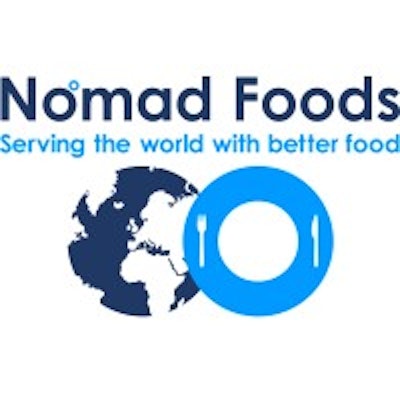
Nomad Foods has released its fifth annual “Eating for the Planet” sustainability report, which reveals its successes over the past year and shows how the company is widening its focus to address its impact in key areas.
Compared to the 2019 baseline, Nomad Foods has reduced carbon emissions per ton of finished goods by more than 20% and absolute emissions by 14%. In 2021, Nomad Foods announced plans to reduce greenhouse gas emissions in line with targets approved by the Science Based Targets initiative and in line with the Paris Climate Agreement.
As well as committing to reducing Scope 1 and 2, and Scope 3 emissions in areas, such as some purchased goods, transportation, and distribution by 25% in absolute terms by 2025 from its 2019 baseline, Nomad Foods will provide vital support to its suppliers, ensuring the top 75% by emissions, develop their own science-based targets by 2025. Nomad Foods also has increased the percentage of its packaging that is recyclable to 90% (up from 83% in 2020).
 | FDA Regs on Perishable Foods, Nut Butters Expected This Year |
Over 20 years ago, Nomad Foods co-founded the MSC (Marine Stewardship Council). Ninety-eight percent of the fish and seafood sourced for its brands now hold MSC or ASC (Aquaculture Stewardship Council) certification. In addition, iglo Portugal, Findus Nordic, and iglo Belgium portfolios are on track to become 100% MSC or ASC certified by this summer.
As part of Nomad Foods’ commitment to keep plastics out of the ocean, it joined the Global Ghost Gear Initiative (GGGI) in 2020. In 2021, the company conducted a risk assessment to help understand which of its suppliers were most vulnerable to gear loss. Overall, the findings suggested that more than 99% of the fish and seafood it sources were low to low/medium risk of gear loss. Nomad Foods is now working with the GGGI to help reduce the risk of losing fish gear from the small proportion of fish supplies that are potentially more susceptible to gear loss.
In addition, in keeping with Nomad Foods’ belief that growing vegetables sustainably ensures the best-quality produce without depleting the ecosystem and threatening future yields, by the end of 2021, 88% of Nomad Foods’ vegetables, potatoes, fruit, and fresh herbs were grown in line with the Sustainable Agriculture Initiative Platform (SAI Platform) Farm Sustainability Assessment (FSA) Silver Level or above.

























